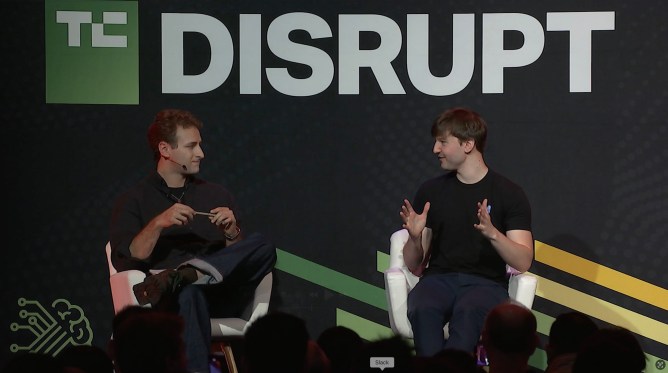Artificial intelligence labs are adopting a new strategy to acquire data. Instead of signing expensive contracts with companies, they are now tapping former senior employees for their industry knowledge. This shift was discussed by Mercor CEO Brendan Foody at TechCrunch Disrupt 2025. He explained that Mercor’s marketplace is a primary channel connecting former employees from investment banks, consulting firms, and law firms with AI labs that aim to automate those industries. Mercor’s clients include prominent AI labs like OpenAI, Anthropic, and Meta.
Foody suggested that companies like Goldman Sachs may not favor the development of models that automate their core operations, as it alters competitive dynamics. This resistance is part of the reason AI labs need services like Mercor. Their customers are reluctant to provide internal data to automate large parts of their business, so the labs hire contractors who previously worked at those companies. These contractors understand the workflows and are willing to train AI models to automate them.
The 22-year-old co-founder of Mercor stated that his startup pays industry experts up to two hundred dollars per hour to complete forms and write reports for AI training. The company now has tens of thousands of contractors and distributes more than one and a half million dollars to them daily. Despite these substantial payments, Foody says Mercor remains profitable because AI labs are willing to pay even more for this valuable data.
In just under three years, Mercor has grown its annualized recurring revenue to approximately five hundred million dollars. The company recently raised funding at a ten billion dollar valuation.
Established companies across the economy have good reason to be concerned about Mercor’s rise. Their industry knowledge could be leaving through former employees on the startup’s marketplace, potentially leading to the automation of their work. Foody acknowledged that he might be exposing a market inefficiency but said he would not call it a loophole.
In fact, Foody says some companies are already embracing this new future of work. He suggested that Mercor’s marketplace could create a new type of gig economy, similar to what Uber did over a decade ago. This idea is supported by the fact that Uber’s former chief product officer, Sundeep Jain, recently joined Mercor as president.
Foody believes that while some companies are fearful of being disintermediated, others recognize that the world is changing quickly. He suspects that the companies embracing this change will be on the right side of history.
While Mercor works to extract knowledge from various industries, Foody stated that the startup tries to prevent contractors from committing corporate espionage, which is the illegal act of stealing proprietary information or trade secrets. However, he admitted this is challenging. Many of Mercor’s contractors are former employees of secretive industries like law and investment banking, and some even still work at their day jobs while submitting data on the side. Contractors are instructed not to upload documents from their former workplaces, but Foody acknowledged that given the scale of his startup, it is possible that things happen.
Foody argues that the knowledge in an employee’s head belongs to the employee, not their company. This is a more generous view than many enterprises would take. Furthermore, some of Mercor’s job postings walk a fine line between requesting an employee’s knowledge and their company’s data. For instance, the company is currently seeking a startup CTO or co-founder who can authorize access to a substantial production codebase for AI evaluations or training. Mercor confirmed that a few startup CTOs have accepted this offer but declined to disclose contract details.
Mercor was among the first data startups to recruit highly-skilled knowledge workers in the United States and pay them large sums to train AI models. Early in the AI boom, data vendors like Scale AI hired contractors in other countries for simple data labeling jobs. Now, most of Mercor’s competitors, including Surge and Scale AI, have recognized that AI labs need experts to improve their models. Many data vendors have also started developing training environments to enhance AI agents’ ability to perform real-world tasks.
Mercor has clearly benefited from Scale AI’s challenges. Many AI labs stopped working with Scale AI after Meta made a large investment in that startup and hired its CEO. In the past year, Mercor has quintupled its valuation, though it remains smaller than Surge and Scale AI, which are both valued at over twenty billion dollars.
Currently, most of Mercor’s revenue comes from just a few AI labs. However, Foody says the startup plans to partner with other industries in the future. He believes companies in law, finance, and medicine will want help leveraging their data to train AI agents, which is a specialty of Mercor.
Foody concluded with a bold prediction. He stated that over time, ChatGPT will be better than the best consulting firm, the best investment bank, and the best law firm. He believes this transformation will radically change the economy and be a broadly positive force that creates abundance for everyone.

